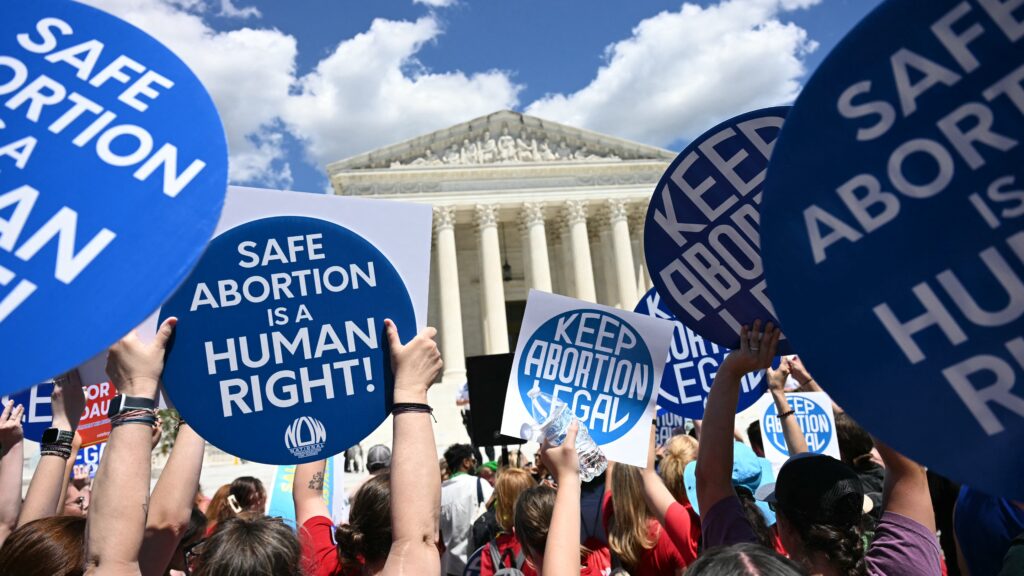By dismissing a case that would have determined whether emergency abortion care is encompassed under the Emergency Medical Treatment and Labor Act (EMTALA), along with other protected emergency care services, the Supreme Court of the United States has opened the door for states to deny women stabilizing and often lifesaving medical procedures.
For nearly 40 years, EMTALA has protected access to emergency services regardless of a person’s ability to pay, citizenship, or legal status. By requiring hospitals to screen, stabilize, treat, or transfer patients in need of emergency care, EMTALA has ensured that anyone needing lifesaving care receives it. Abortion is a medical procedure that ends a pregnancy. While some are performed by choice in nonemergency situations, abortions are also needed when pregnancies are no longer viable or when they endanger a mother’s life. Medically necessary abortion care should not be considered any less essential than other protected emergency care provided by hospitals.
advertisement
Shortly after the Dobbs decision overturned the constitutional right to abortion set out in Roe v. Wade, lawmakers in Idaho enacted restrictive abortion bans. After a federal district court ruled to protect emergency abortion care in Idaho under EMTALA, Idaho and the state’s legislature requested the Supreme Court to weigh in on whether EMTALA’s federal mandate can override state laws that restrict abortion access. The Supreme Court’s dismissal of the case ultimately leaves the decision up to the lower courts.
Although medically necessary emergency abortion care is still allowed in Idaho under EMTALA following the Supreme Court’s decision, its fate in Idaho and other states remains uncertain. While the court could have put the issue to rest, it is now up to the states and lower courts to decide what emergency care pregnant people can receive. In many states, this may lead to dire consequences, including an increase in maternal deaths.
As the chief medical officer of a company that provides hospitals across the U.S. with OB-GYNs and certified nurse-midwives, I and my colleagues know firsthand how critical emergency protections are to preserve women’s health, and so believe that the Supreme Court’s nondecision is harmful.
advertisement
Denying medically necessary emergency abortions can lead to complications. Unless treated quickly — which may not happen if someone is turned away due to restrictive abortion laws — complications like sepsis can cause chronic pain, organ dysfunction, amputations, lingering post-traumatic stress disorder (PTSD), loss of fertility, and even death. Emergency abortions must be protected so pregnant people don’t develop these serious conditions due to a delay or lack of care.
Restrictive abortion laws have already caused clinicians to question whether they can provide timely, medically necessary abortion care. Although every state with an abortion ban has exceptions for pregnancies that risk the life of the mother, these exceptions can vary and be unclear. When clinicians aren’t certain how close to death a pregnant patient needs to be to warrant an exception for abortion care, gray areas can emerge and emergency medical care can be delayed or denied.
There are many instances in which emergency abortion care is essential due to significant health risks to the mother — but are not necessarily labeled as immediately life-threatening. In these cases, such as intrauterine infection, bleeding, preeclampsia, or premature rupture of membranes, a wait-and-see approach can be deadly. In addition to delaying care, reviewing the legality of cases adds additional work to clinicians’ already full plates. Even when cases seem clear-cut, many clinicians are hesitant to treat patients due to fear of legal retribution: we’ve already seen reports of women being denied care despite falling into the defined “exceptions.”
To avoid these ethical and legal dilemmas, many clinicians are choosing to stop working in states with restrictive abortion laws, with new physicians avoiding these states at alarming rates as well. According to the Idaho Physician Well-being Action Collaborative, 22% of the state’s practicing obstetricians have already left Idaho.
A lack of physicians in states with restrictive abortion laws will only increase maternity care deserts in the United States. Women living in states with restrictive abortion laws have far more limited options when it comes to maternity care with 39% of counties in abortion-restriction states considered maternity care deserts, compared with only 25% of counties in abortion-access states.
In areas where obstetric care, including emergency abortion care, is inaccessible, maternal mortality rates are higher. In a report by the Commonwealth Fund, overall death rates for women of reproductive age in abortion-restriction states were 34% higher than in abortion-access states.
These unintended consequences of restricting abortion care are unacceptable, and protecting women’s rights to the procedure in emergency situations is essential to support overall maternal health and reduce disparities in care.
There needs to be a clear distinction between elective and emergency procedures. Because a federal law to enforce this distinction and set clear standards seems unlikely at this time, and with states holding increased legislative power when it comes to abortion laws, advocacy at the state level is essential. Health systems, hospitals, labor and delivery units, and OB hospitalist programs must also help their clinicians navigate evolving legislation by ensuring a strong understanding of how to interpret the laws and continue practicing their oath to do no harm.
I believe that physicians and midwives, not legislators, must be the decision-makers when it comes to providing medically necessary care. It should be the number one priority of every maternal health clinician in every state to provide the highest quality of care to pregnant people regardless of their circumstances, insurance status, or previous medical care. It’s time to stop reversing decades of protections for women’s health and ensure that all pregnant people nationwide have access to timely and evidence-based care.
Mark N. Simon, M.D., is an OB-GYN and chief medical officer at Ob Hospitalist Group, headquartered in Greenville, S.C., which employs more than 1,800 OB-GYNs and certified nurse-midwives working in 39 states.

